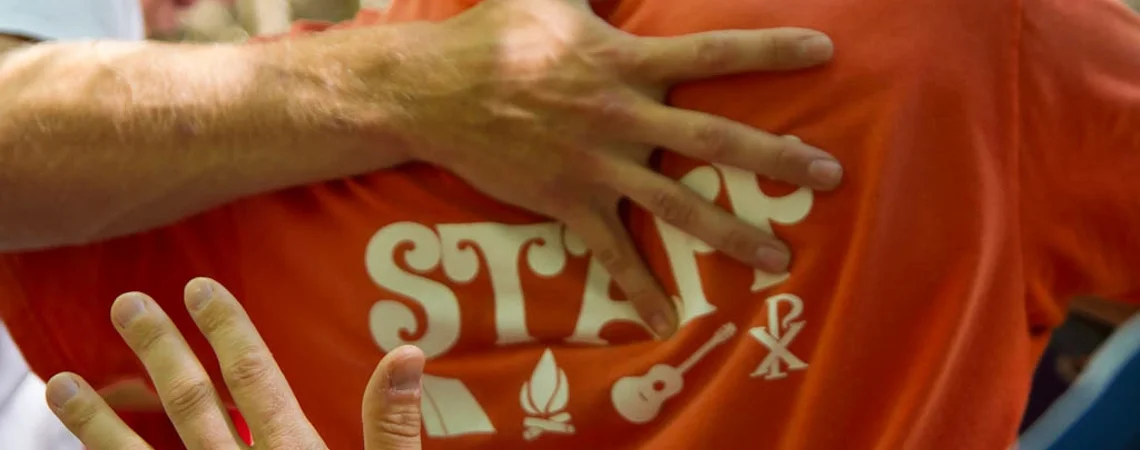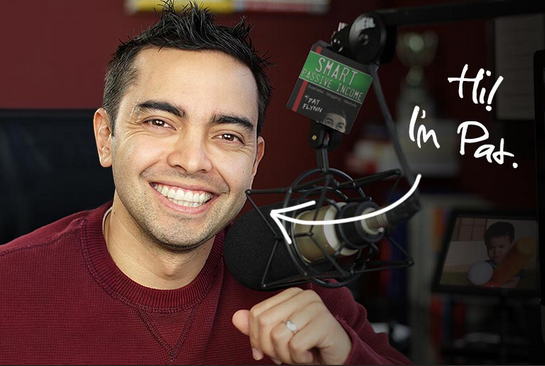Making your online presence feel like an open house
Hey all! James Davis here.
By now, Summer Camp feels like a distant memory. The hustle of trying to get summer camp 2015's brochure together is upon you, and you're looking at spreadsheets trying to figure out how you can get from where you are now to where you want to be.
We've all been there.
Camps, more than many industries, have resisted moving into the internet age. I know my first instinct when approached with the idea of redesigning a camp website was to try and find someone to make one for me. And that can work. The only problem? Almost all web designers don't know anything about camp.
This might not seem significant at first - but I want you to take a moment with me and go through a little exercise. Don't close your eyes, though, or you won't be able to read with me.
How we tell our stories in person
Picture the last time you had an open house at your camp. Picture the process of getting the site ready, of briefing staff and volunteers before the first visitors arrive, of taking that last determined breath as you saw the first car pull into the parking lot.
Now, picture yourself walking over to that potential camp family. Picture yourself smiling with your staff and/or volunteers smiling excitedly in the back ground. Now you're walking around camp, passionately describing the impact your camp has had on the lives of young people. Heck - your camp may have even had that sort of impact on YOU. You're telling stories, sharing memories about certain places on camp, and answering any objections with the ease of a (sales)person who believes in his or her product 100%.
Powerful stuff.
By all indicators, camps crush it when it comes to converting open house visitors into summer campers.
So why are we still wringing our hands about next year's numbers? When people meet us, they love us. They want to be a part of our family. Shouldn't this sort of community engagement lead to being booked solid by October each year?
Hmm.
How the experts tell their stories online
The best online businesspeople know that you need to know them in order to trust them. Here's a picture from the front page of Pat Flynn's mega-successful smartpassiveincome.com.
Now, let's go through another exercise. First, I want you to visit a few websites of hugely successful internet marketers: Smart Passive Income with Pat Flynn, Wistia (an online video hosting software platform), and Fizzle.
These are businesses that are hugely successful in incredibly competitive market place. And they don't have the benefit of being able to give tours in person. So how do they do it?
They tell their story, and they tell it well.
The first part of telling a business' story is talking about what problem it solves.
Smart Passive Income tells you, right away, that it is going to help you find out what works in developing an online business. Wistia gives you hope that you can harness the power of non-viral video to touch people's lives. Fizzle tells you that it is going to help you create an online business using honest techniques, and give you access to a community of entrepreneurs who will help you. And all three let you get to know the real human beings that you'll be learning from.
In short, they've figured out how to recreate that open house experience right when you get to their website.
How we tell our stories online
Now, visit your own camp's website. What do you see? On most camp websites I visit, I see a lot of information about where a camp is, or the types of things I can find there, or what organizations accredit it, or maybe the odd camp promo video (which also focuses on what happens at camp, not necessary WHY people should come to your camp). Now, that stuff is important. But as Pat Flynn pointed out in his opening keynote at the financial bloggers conference in 2013, new visitors to a website are staying for .2 seconds before deciding if they are going to stay or not.
In .2 seconds, you need to tell them enough to make them want to learn more.
Picture that prospective camp family coming to your open house again. Remember the first thing you did? You introduced yourself. That's exactly what these successful online companies do.
Next, you got to know the families that came. You asked what the child was interested in, and likely assured him that he'd have some ability to do something like that at your camp. Like the websites I shared, you figured out what he wanted, and tried to tell him that you could help him with that.
If you got the parents alone for a moment, you might share how your camp deals with bullying, or facilitates connection between campers - you'd speak to the fears and objections that the parents might have before entrusting you with their child.
But there's one difference between interacting in person and online - in person, there's a back and forth. Online, we need to anticipate what parents want to know about us.
That's where your camp's website comes in.
Sure, your parents are going to want to know where you are located. But they aren't going to entrust the most important thing in the world to you because you happen to be within an hour's drive.
They're going to leave campers with you because they trust you.
The easy things you can do
Okay, I'm going to give you an easy checklist that I use whenever I'm designing a website or a specific page on a website (the summer camp registration page, for instance). These are easy things you can look for that communicate so much more than where you are located, or that you have ACA accreditation.
- Am I speaking to a problem that parent might have and offering a solution?
- Am I introducing myself and building trust with that parent?
- Am I differentiating myself from the other 10 websites that parent will visit that day?
- Am I opening the door for future communication?
Offering a Solution
Offering a solution to a parent's potential problem is what you're doing every time you interact with a potential camp family outside of camp. When you say, "It will give him a chance to get back outdoors," you're speaking to a parent's concern that her child might be using too much technology. When you say, "It's a great place for kids to make new friends," you're speaking to a parent's concern that her child gets picked on in school, or is lonely.
Introduction
The next thing you can do is introduce yourself and your staff. What special qualifications do you have that make you someone who is trustworthy? A video here goes a long way, and it doesn't have to be anything fancy. Plus, people love watching videos - it's something intriguing that can get them to click right away. And once they learn a little and get in the habit of "saying yes" to you, they'll want to say yes to learning about other things as well.
Differentiation
I'm talking about your camp's focus. With a bunch of camps out there that all have canoes, and archery, and probably a ropes course, and all those other lovely program offerings, what makes your camp truly special? If your answer is, "But our ropes course really IS special," then chances are good your website will be another bit of white noise in a parent's camp browsing day.
For me, differentiation ties back in to offering a solution to a problem. I'm talking tag lines here. Home Depot communicates exactly what it does for you in one sentence - "You can do it. We can help." It knows you want to take care of home repair yourself, but that you're a little intimidated walking into a traditional hardware store that's visited by contractors. It anticipates your problem, and assures you it has the solution.
Figure out the problem you solve for parents, and describe how your solution is different and best. It goes a long way.
Opening the door for future discussion
If you're a frequent internet user, you've probably noticed that many companies are happy to do just about anything for a simple chance at having your email address. This isn't because they want to bother you. It's because they know that making a sale takes time, and that you're a lot more likely to trust someone you've known about for a while than someone you've "just met", even in the online sense. If you've intrigued a parent enough to stay on your website past the .2 seconds they might have otherwise, a great tool for staying in their mind is simply attempting to collect their email address. The ways to do this are numerous and varied, but if you're interested in doing more than just asking for it, let us know in the comments and we can walk you through that process.
Where to go from here
Listen, if you're serious about filling those slots for next summer, you've got to have an outpost online that tells your story as well as you do in person. But doing that isn't easy. That's why you need to rely on your fellow Camp Pros for help. If you're interested in a free assessment of the front page of your website & recommendations as to what you can do about it, simply leave your camp's website in the comments, and we'll post a reply (or email you personally if you prefer).
We can tell our stories better online, it just takes practice. That's why, at CampHacker.tv, we're here to help.


